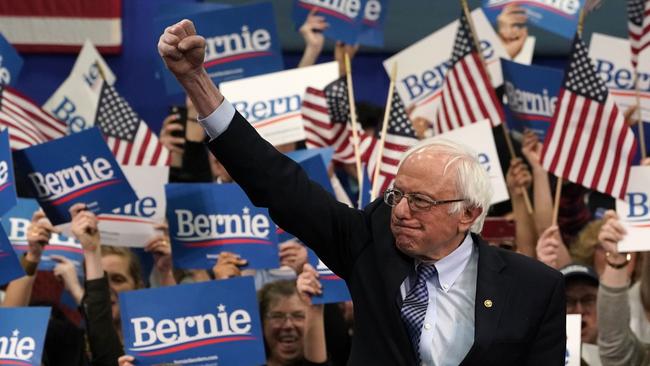
He recently had a heart attack and has never been a member of the Democratic Party. He went to the Soviet Union for his honeymoon and extolled the Soviet system’s strengths. Sanders is the American Jeremy Corbyn. A Sanders presidency would be disastrous, geo-strategically and in every other way.
Could he, nonetheless, become president? Probably not, but most people (myself included) thought Donald Trump could not become president.
In New Hampshire Sanders won the narrowest victory against former mayor Pete Buttigieg, a slip of a lad 40 years his junior.
This was a bit like a junior school sports event with a prize for almost everyone. The biggest winner, as usual with Democrat events, was probably Trump. He so much wants Sanders as his opponent.
It was a big win for another politician not on the ballot, former New York mayor Mike Bloomberg. He might spend a billion dollars supporting his own primary campaign and he hopes moderate Democrats, aghast at Sanders, will flock to him when he enters the contest on Super Tuesday in a few weeks.
New Hampshire is a big boost for Buttigieg. He wants to be the centrist alternative to Sanders. But Sanders, despite his age, gave a rousing victory speech while Buttigieg was oddly robotic.
The other big winner was Amy Klobuchar. She came a hot third. She’s now the leading woman and a much more experienced centrist than Buttigieg.
She gave a wonderful “victory speech”: “Hello America, I’m Amy Klobuchar and I will beat Donald Trump!” You have to be a bit strange to run for the presidency, but Klobuchar just looks and feels like the most normal person in the contest. She also has that rarest of gifts for a politician, a sense of humour that works in public. If I were voting in the Democratic primaries, I’d vote for her.
The emergence of such previously unfancied candidates is a powerful testament to the democratic opportunity and political utility of a staggered, sequential primary season.
The next contests are Nevada and South Carolina, and then come 15 simultaneous primaries on Super Tuesday. This is an inherently undemocratic structure because it favours big money and simple name recognition. It’s fashionable to mock American democracy but long, demanding primary processes are a glory of democracy.
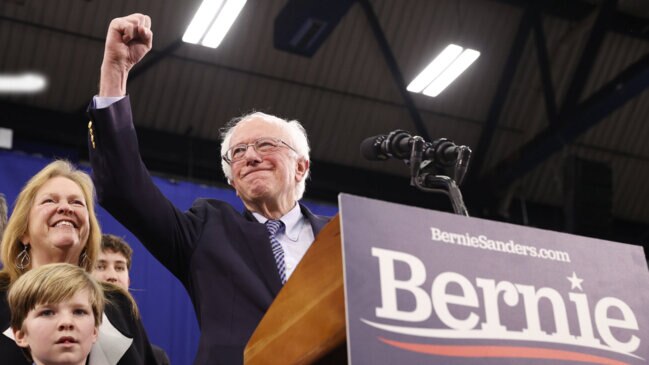
There were two huge losers in New Hampshire. Joe Biden, Barack Obama’s vice-president, finished an ignominious, humiliating fifth. He had been the establishment’s tepid pick and led national polls, yet he never even secured the endorsement of the president he served. He would have won a pre-emptive, simultaneous primary before campaigning began just on name recognition. But he campaigns feebly. Among all the septuagenarians running, he seems the most doddery, frequently a bit befuddled on the stump and in debates. He has run in presidential primaries twice before and never made an impression. He had to drop out of one because he plagiarised British Labour leader Neil Kinnock. Frankly, plagiarising Kinnock is not so much dishonourable as just gobsmackingly weird.
No modern Democrat has won the nomination without coming first or second in New Hampshire, but of course politics is not the common law, it’s not bound by precedent. Biden inherited Obama’s support among African-Americans, but as his numbers have slowly sagged during the past few weeks his support among minorities also has sagged. To sustain his story of triumph among minorities he must perform very well in the Nevada caucuses because Nevada is only 50 per cent non-Hispanic white. Biden must then do spectacularly well in South Carolina, where typically 60 per cent of voting Democrats are black.
The other big loser was Elizabeth Warren. She sounds like a policy wonk and is slightly less leftist than Sanders. She is a feminist superhero and previously the darling of progressive Democrats. Sanders even says he would not have run against Hillary Clinton last time if Warren had run. She briefly led the national polls among Democrats. Here, she finished a dismal fourth. There was a huge gap between the first three and the rest. No one outside the top three got a single delegate to the nominating convention.
Here’s a telling fact: Warren and Biden were subject to withering attack from Trump — Pocohontas (Warren had falsely claimed to be Native American) and Sloppy Joe, as he labelled them. Trump is a destructive opponent. His methods are not attractive but his ability to frame an opponent, to provide a cut-through political character assessment, is extremely formidable. Whoever the Democrats nominate will have to withstand sustained and ferocious attacks from Trump. These methods don’t make Trump a loved figure but they can make it extremely difficult for anyone running against him.
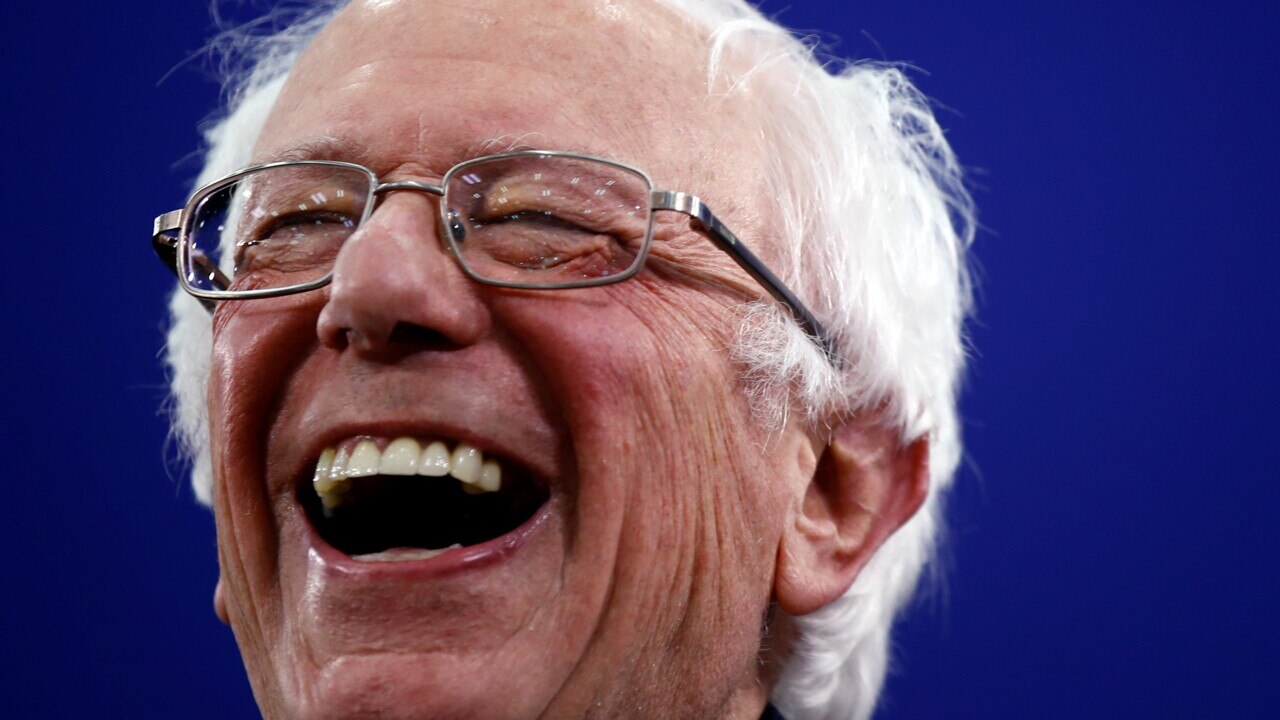
A couple of mechanical things. Sanders most resembles Trump in having a fixed base of support that it seems will never desert him. But Republican primaries differ from Democratic primaries in a key respect that hugely aided Trump in 2016. Most Republican primaries are winner takes all. So in 2016 if Trump won a primary with 25 or 30 per cent of the vote he would get 100 per cent of that state’s delegates. No anti-Trump movement ever consolidated. Democratic primaries award delegates on a proportional basis so even in a big field Sanders probably cannot win the nomination if he keeps coming first with 25 per cent of the vote.
The next contest is Nevada, which most closely resembles the national Democratic Party demographically. A big win for Sanders, Buttigieg or Klobuchar there would demonstrate immense appeal across the party.
Bloomberg has had a surge in the polls because of hundreds of millions of dollars of ads. But there is nothing like the actual scrutiny and opposition you get in a real campaign. Coming in so late may be his best strategy because he has avoided all that so far. Unlike Buttigieg or Klobuchar, he didn’t need momentum to secure resources.
Sanders leaves New Hampshire as the champion of the left lane, with Buttigieg, Klobuchar, Bloomberg and an almost walking-dead Biden all contesting the centre lane. The half credible candidates who dropped out — Cory Booker and Kamala Harris — must be cursing themselves. The unpredictable sovereignty of voters is majestic.


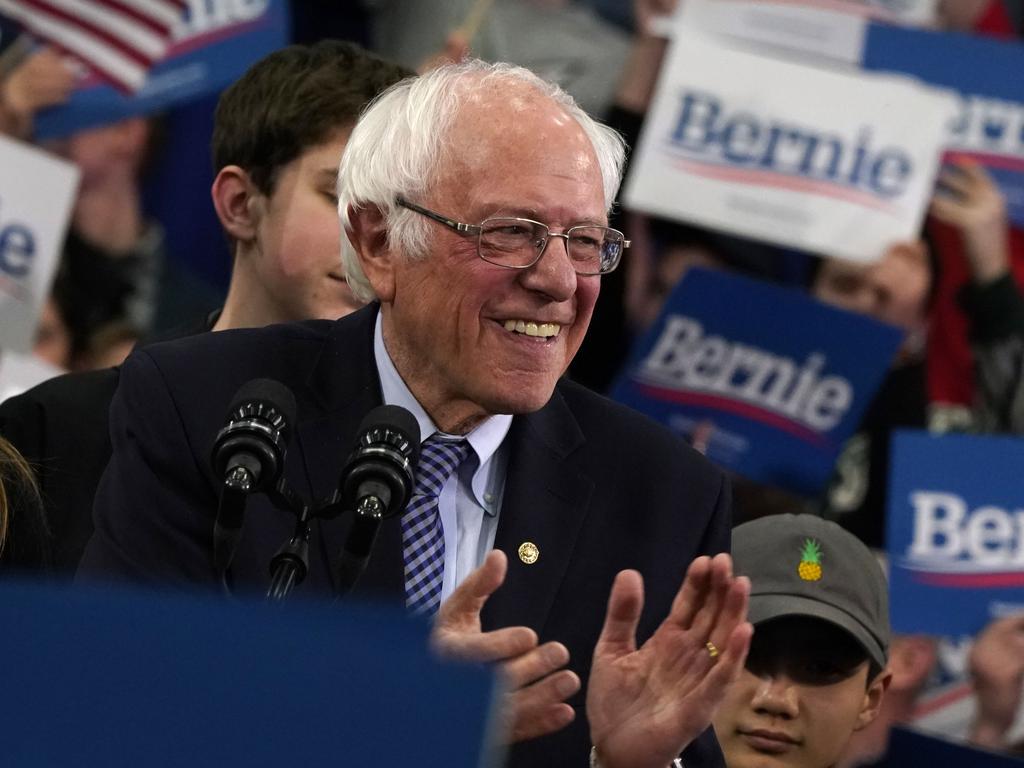
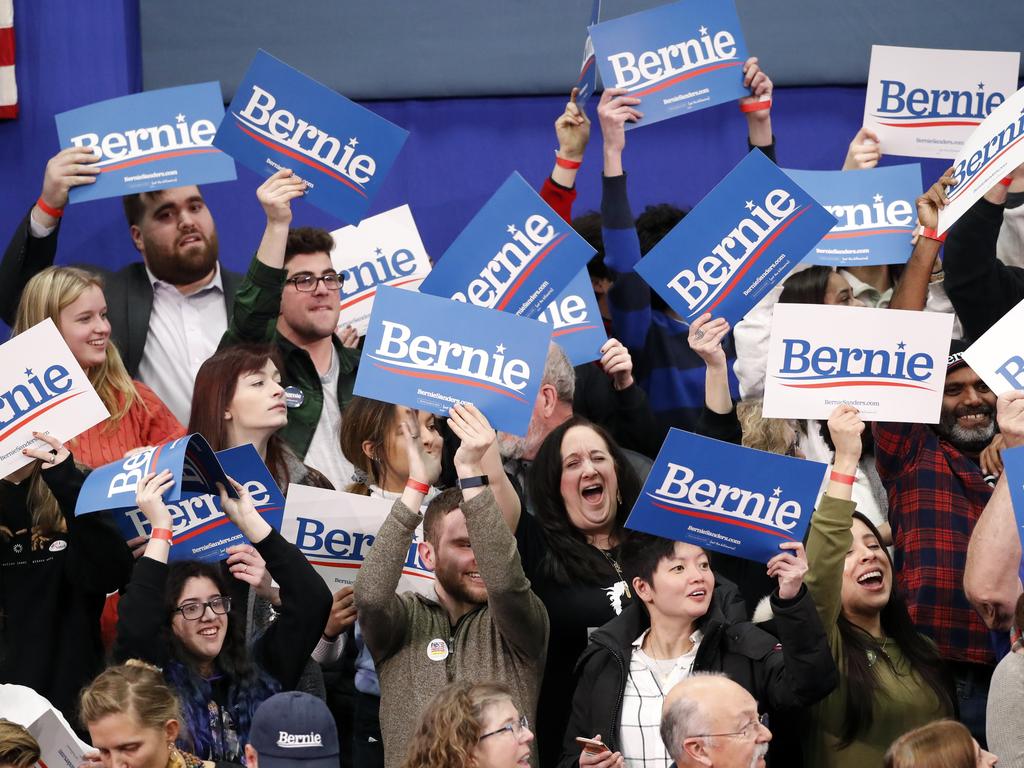
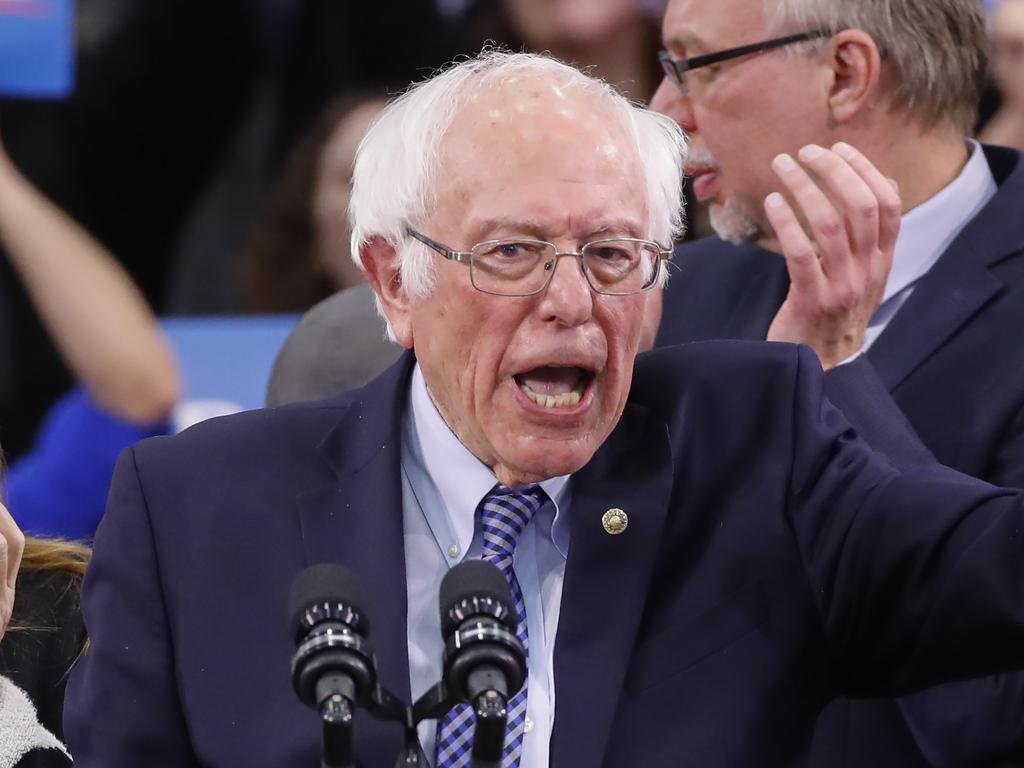
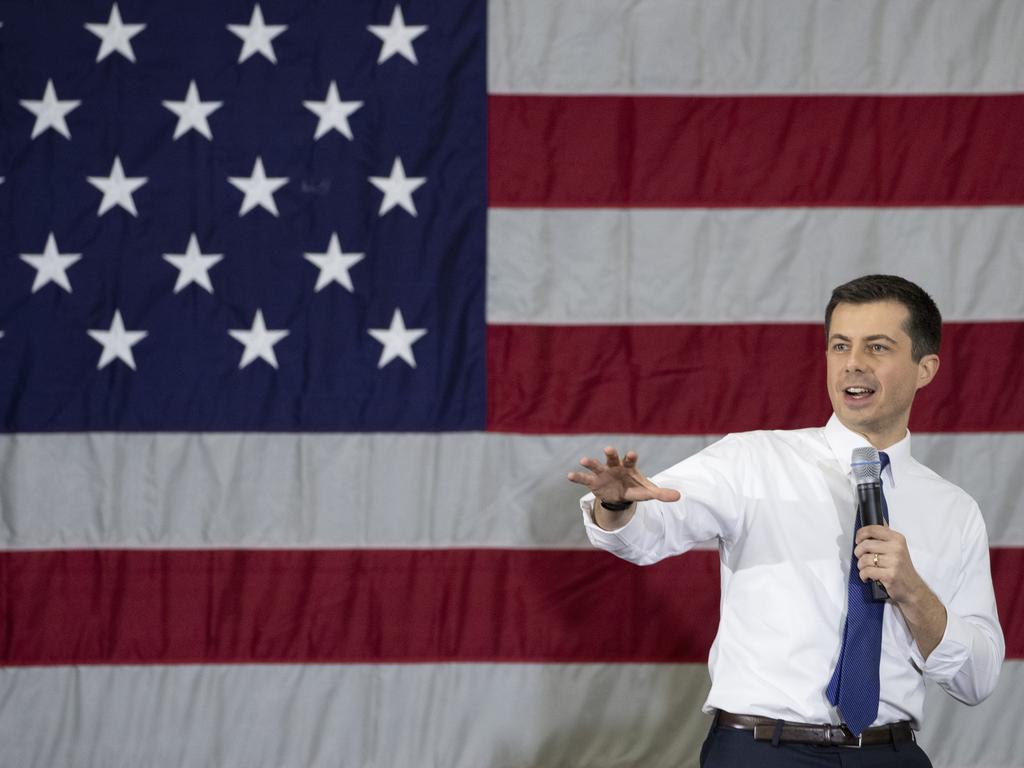
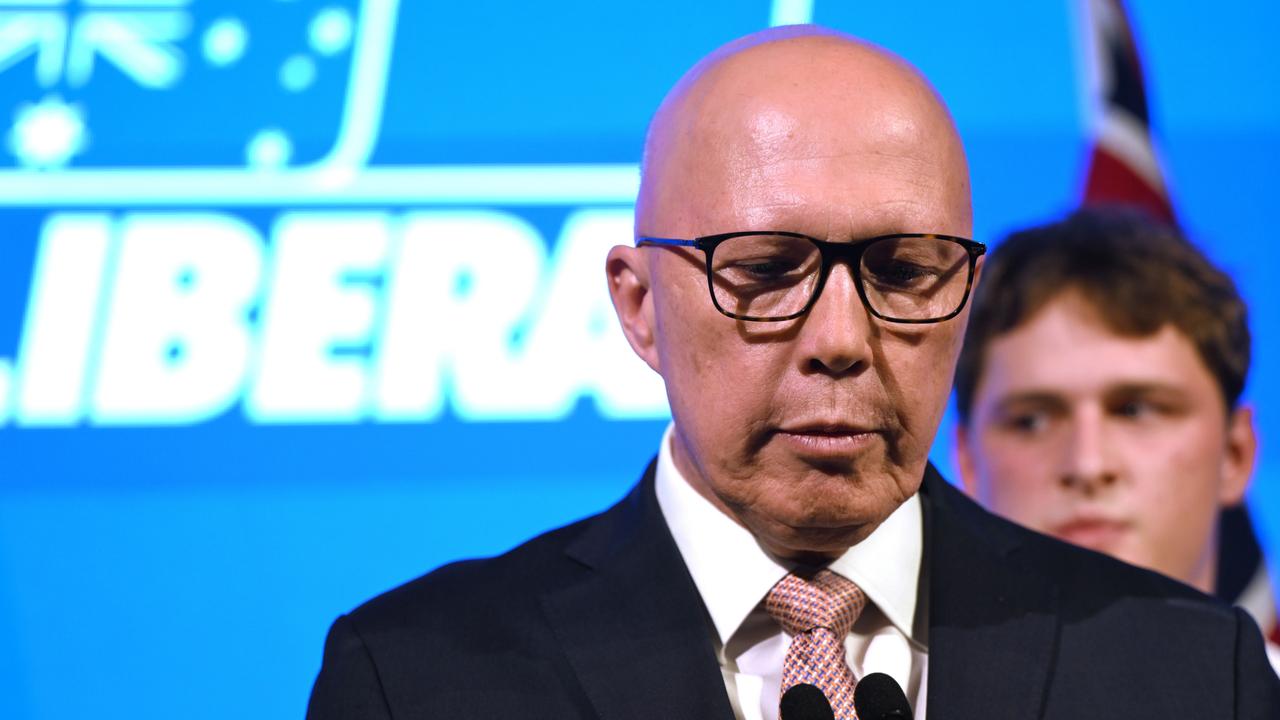
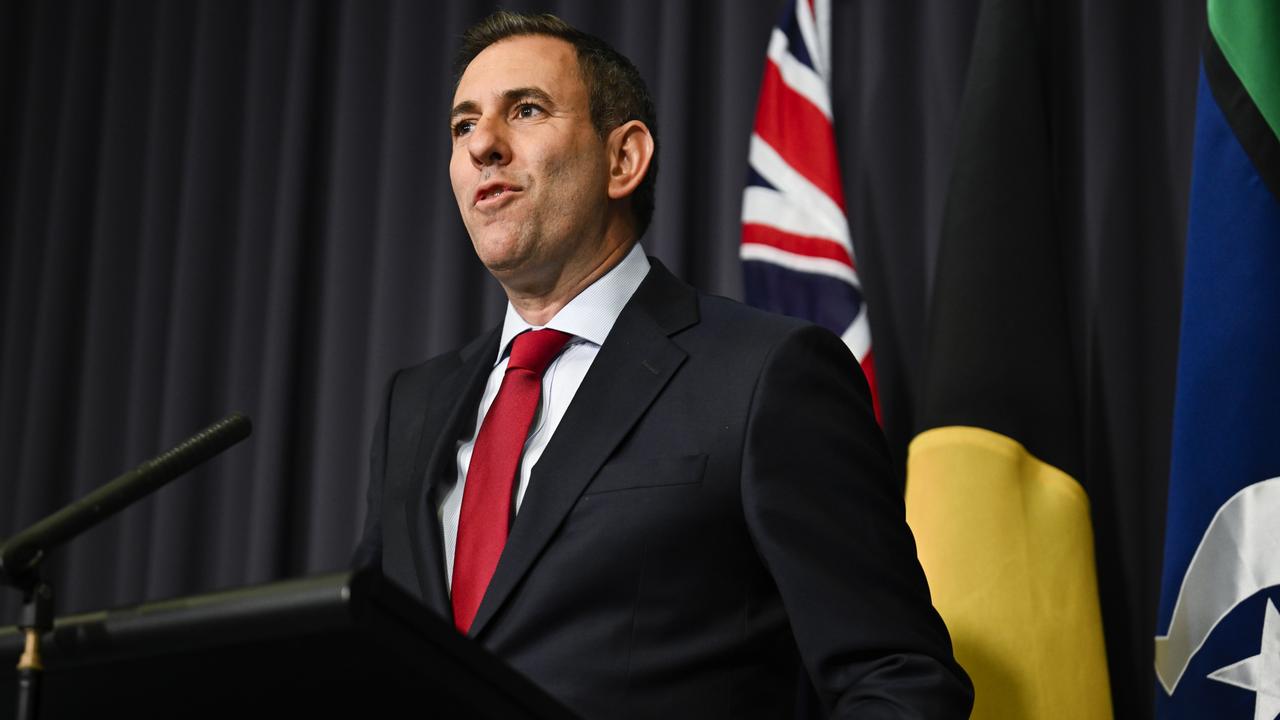
Could Bernie Sanders possibly be president? He’s 78, a self-declared socialist who wants a revolution in US politics, a left-winger who wants to abolish private health insurance, make tertiary education free and forgive all student debt, who wants to raise taxes, who damns all fossil fuels in the crusade against climate change.